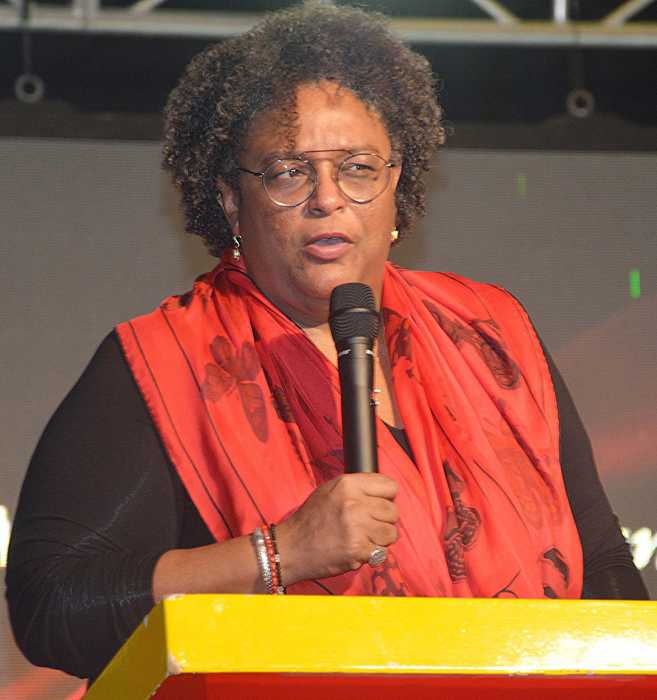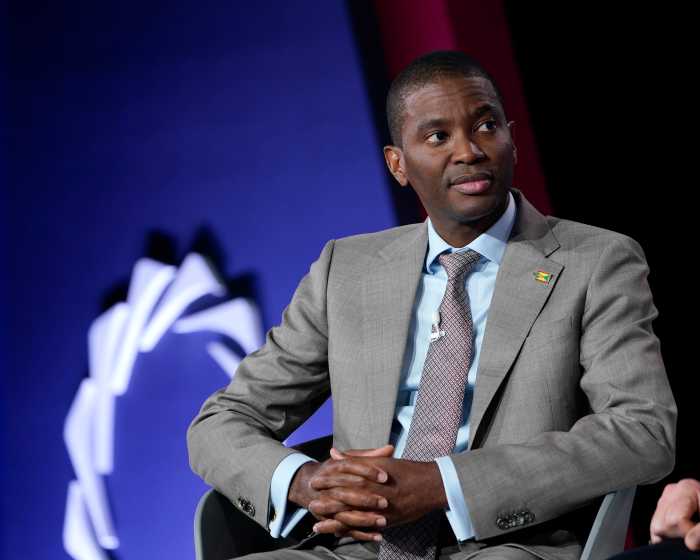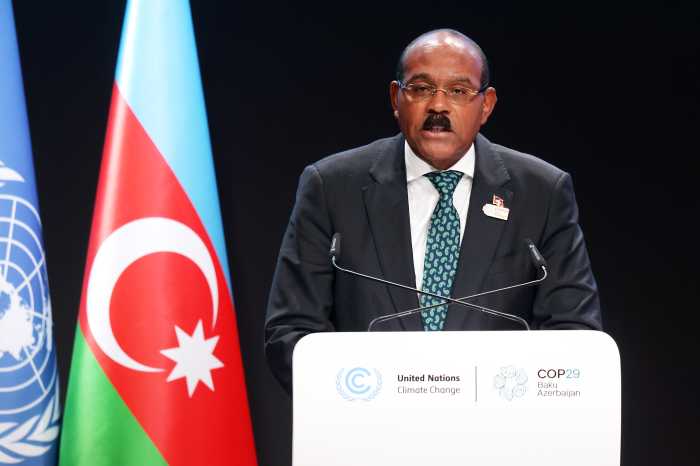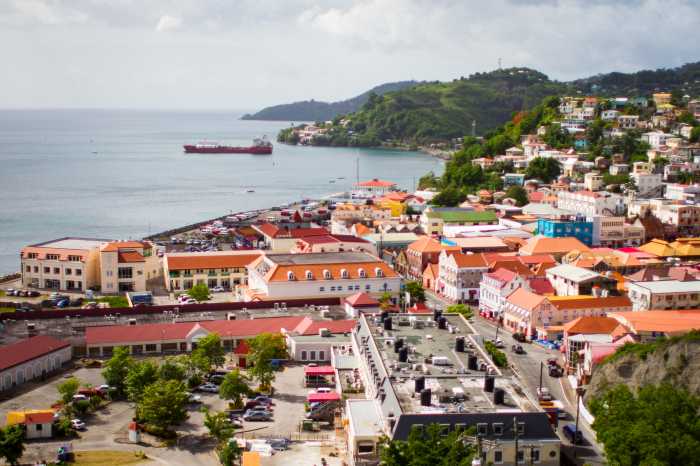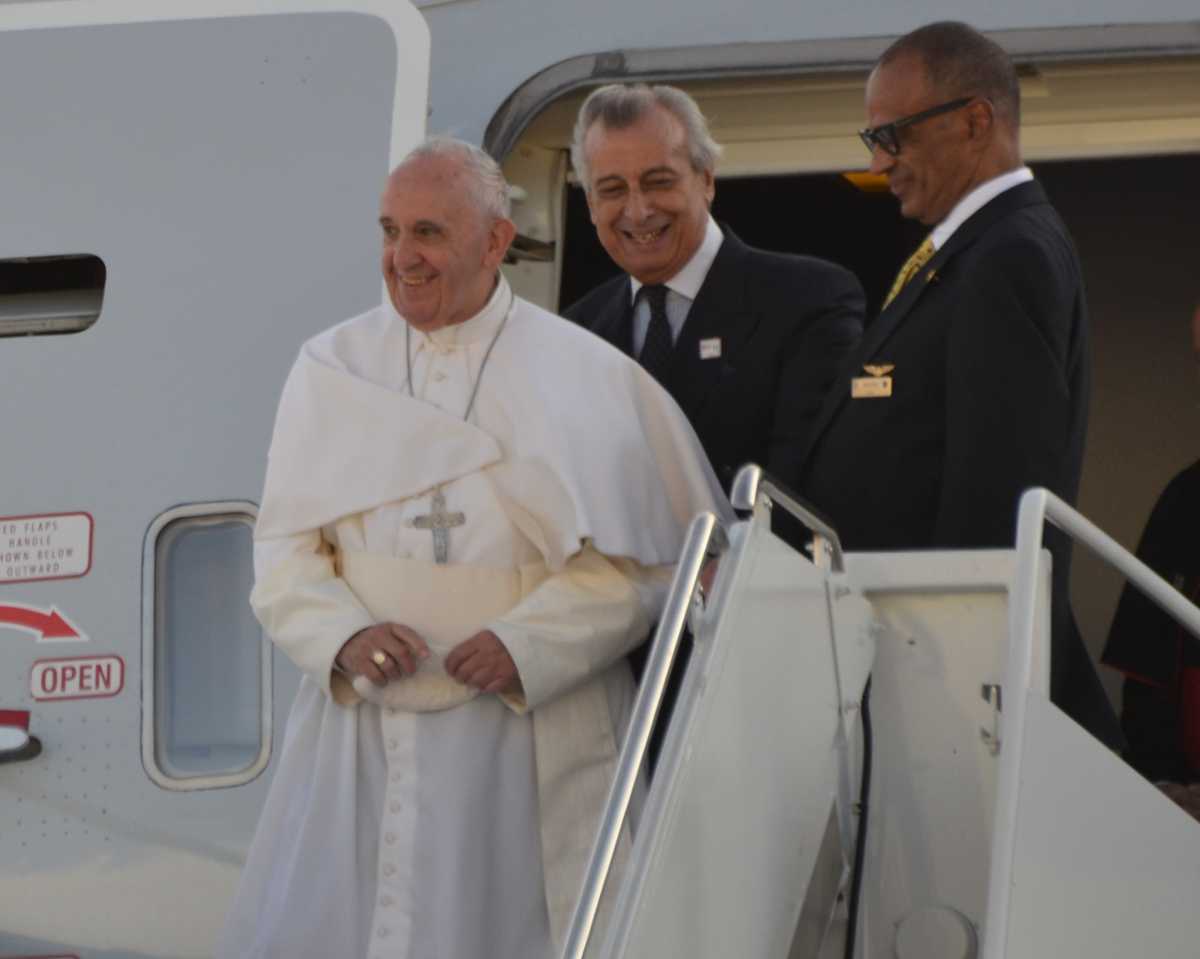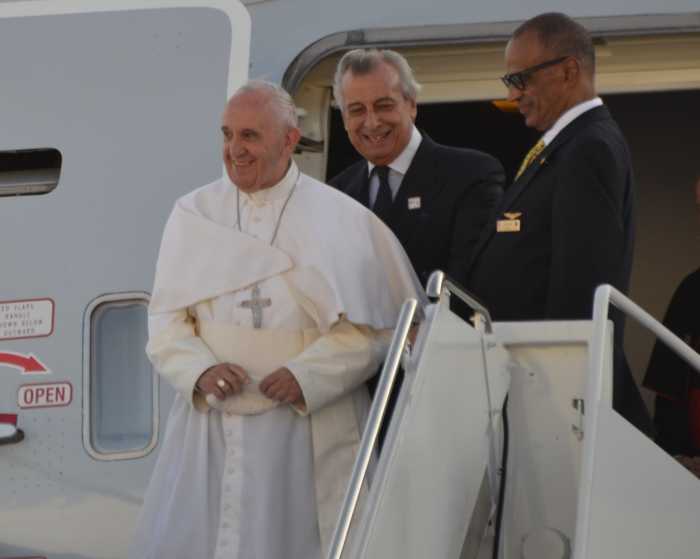Many critics in the Caribbean might be tempted to regard 2022 as the year of snap elections in the Caribbean with the region holding four polls with two incumbents retaining power, but observers also hail progress with climate change financing, the fight for reparations for slavery and perhaps, unprecedented levels of engagement with the US government and Congress as major highlights of the year.
Prime Minister Mia Mottley of Barbados and Keith Rowley of Barbados strutted to Capitol Hill in September to complain about the extent to which the American financial system is isolating the region, refusing to complete simple wire transfers requests by counterpart institutions like the Bank of America.
The banks and regulators say this is to prevent international money laundering, but once Mottley had addressed the committee, they all agreed that western and eastern nations like Russia and Switzerland are far bigger culprits than the Caribbean but are not being punished. Committee Chair Barbara Waters agreed to take corrective action going forward especially after she had heard Mottley complain that the action by banks and other agencies are “driving people underground. This is the most nonsensical thing we have seen in public policy. Unless we are able to trade with the rest of the world we are at risk of becoming financial pariahs.” Banks apart, Caribbean officials are engaged and sitting on at least three committees set up by President Biden after the mid-year Summit of Americas in California on issues ranging from, ironically finance, hemispheric security and climate change. Officials say the level of engagement with the US is probably at an all-time high and bodes well for the future.
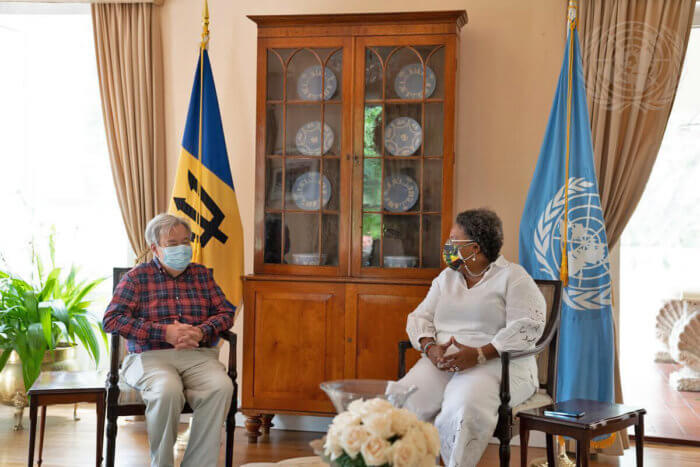
CLIMATE CHANGE
In this regard, governments are taking credit for agreement at the recent COP 27 global conference in Egypt by the bigger polluting nations to establish a climate loss and damage fund that will help nations finance recovery programs after devastating natural disasters that are linked to climate change. Details are still to be worked out but UN Secretary General Antonio Guterres said the conference had “taken an important step towards justice.” Less fanfare, is, however, being made by the region about an incomplete agreement to limit global warming to 1.5 centigrade as the west waffled on this.
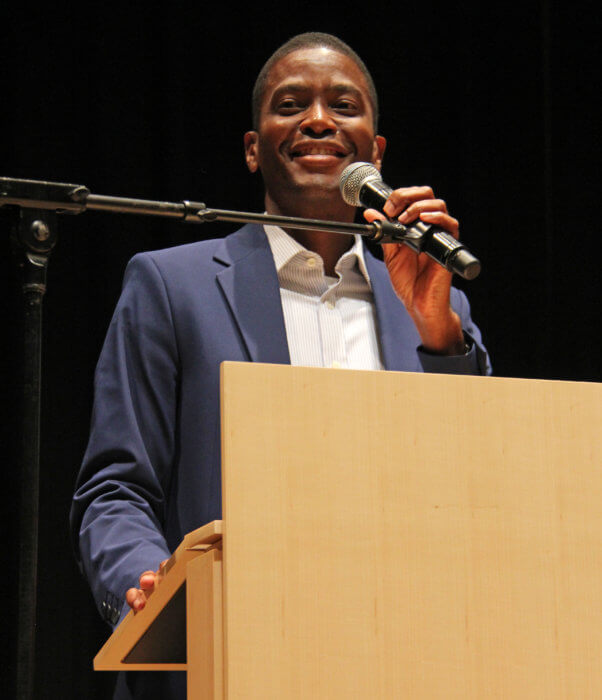
ELECTIONS
Back in the region, St. Kitts, Barbados, Grenada and Dominica all held general elections, with all but St. Kitts calling snap polls to catch disorganized or feuding opposition parties off guard. It worked so well in Barbados that Mottley’s Labor Party (BLP) won all 30 seats for a second and unprecedented time in island history. For St. Kitts, the team unity, multiparty coalition collapsed earlier this year amid public infighting over alleged authoritarian tendencies by then Prime Minister Timothy Harris so the outfits went their separate ways. When the results were announced in early August, those former unity parties had been vanquished, as the St. Kitts-Nevis Labor party returned triumphantly as voters appeared to have opted for stability rather than favored candidates. In Grenada, Keith Mitchell who had thrice won all 15 seats dreamed of a repeat so he called elections and was sent to the opposition benches by the National Democratic Congress (NDC) led by young attorney turned PM Dickon Mitchell. And when no one appeared to be paying attention, Roosevelt Skerrit called elections for the first week in December in Dominica amid a simmering row over an alleged inaccurate voters list. The opposition stayed away so his Labor Party basically won a landslide.
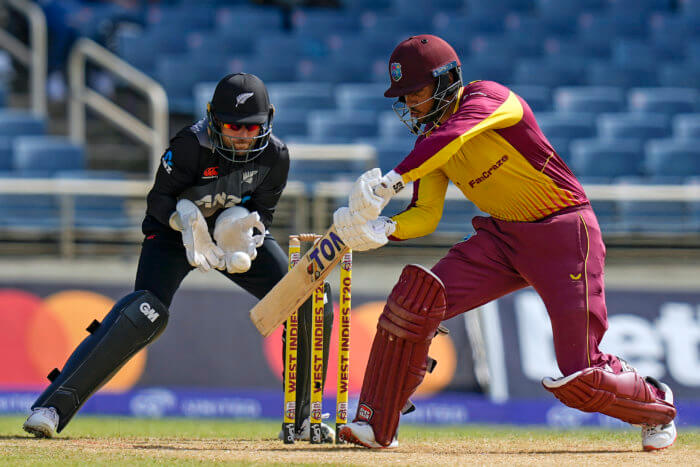
CRICKET
Meanwhile, the hapless West Indies cricket team which had twice won the world T-20 championships could not even qualify for the tournament as they were beaten in the qualifiers by minnows Scotland, Ireland and Afghanistan in a major humiliation for the region. And as the year closes, the senior Test team is being humiliated on tour to Australia being bowled out for 77 in the last of a two Test series, another instance of embarrassment for the region.
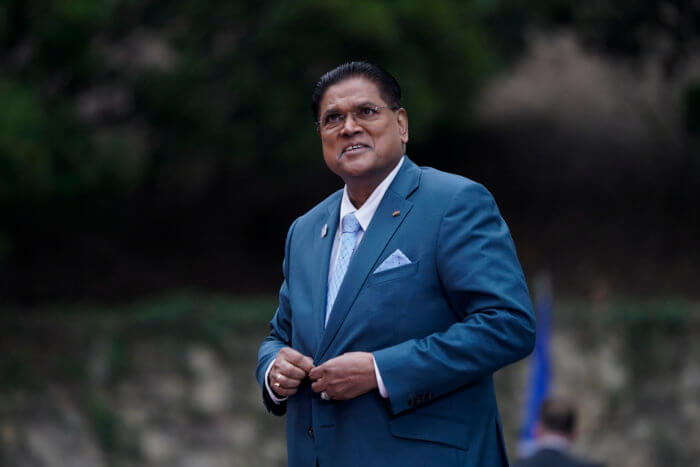
REPARATIONS
Regarding positive news in the 15-nation bloc, the fight to make European nations pay for their role in the trans Atlantic slave trade appears to be picking up steam with Barbados becoming the first bloc nation to identify, single out and engage a wealthy British family for their inter-generational role in the genocide.
British lawmaker Richard Drax has already talked with PM Mottley and top Barbadian officials about owing up to past family since as records show that the family wealth today can easily be traced to their role in establishing the brutal plantation system on the island and across the region. Meanwhile, Surinamese government officials say they expect The Netherlands to carry through with a planned Dec. 19 formal apology and to point the way for some form of payment for its past. Dutch lawmakers recently visited Suriname and other Dutch protectorates in the region. They recommended an apology.
FOOD SECURITY
And worried about an annual food import bill climbing past $6 billion, leaders held two special summits on agriculture and food security this year to discuss increased production, establishment of mega farms and greater institutional support for the sector. In early December, they roped in Cuba in the food security effort while attending a 50th year of diplomatic relations between the two in Barbados. Cuba in turn, has agreed to ramp up assistance to a region which back in 1972 had helped it to end international isolation.
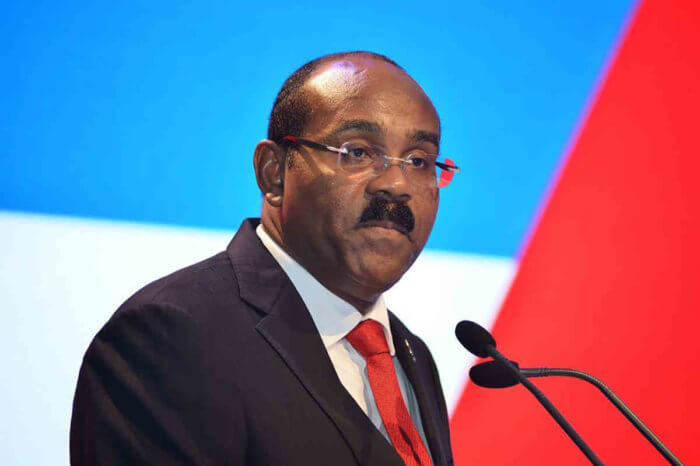
AIR TRAVEL
As it relates to air travel in the region, recovery efforts from the COVID-19 pandemic, Prime Minister Gaston Browne of Antigua appears to be waging a lonely battle to revive former legendary LIAT, the former air travel lifeline for the bloc and the wider Caribbean. It collapsed back in 2020 under the weight of nearly $100 million in debt, only to be replaced by a lackluster Inter Caribbean Airways that has been roundly criticized for its unreliability and related problems. As an example of how tough it is to move around the region without LIAT, PM Mitchell recently complained that he had to be airlifted by a regional security system plane just to get to neighboring Trinidad, about 100 miles away. The alternative was to fly to Miami then all the way back down to Trinidad.
CARBON CREDITS, OIL
In December as well, oil and gas-rich Guyana inked a historic deal with US-based Hess Corporation to sell $750 million worth of carbon credits linked to the protection of Guyana’s standing stock of Amazonian rainforest. Back in 2019, it had also clinched an agreement with Norway for $250 million to also protect its forests. This is even as an international consortium led by ExxonMobil continues to ramp up oil exploration and production offshore Guyana with more than 30 wells and about 10 billion barrels available for exploitation. That figure is soon to be significantly increased, says Exxon. Neighboring Suriname, which has also found large amounts of light crude like Guyana, has pushed back start-up production by about two years to 2027 because of political and exploration issues.
CRIME
The other major issue of concern to governments are linked to a frightening hike in gun and violent crimes in the region. Trinidad, Jamaica, The Bahamas, Barbados and St. Lucia are all complaining about runaway gang violence. Trinidad for example will see record murder figures this year as killings have already surpassed the 2008 figure of 530 with 565 by the first week of December. Police there fear 600 people could be killed this year. Jamaica, meanwhile, has imposed limited state of emergency lockdowns in several parishes as senseless murders rise and, like Trinidad, high powered weapons continue to be smuggled into the country from North America.


